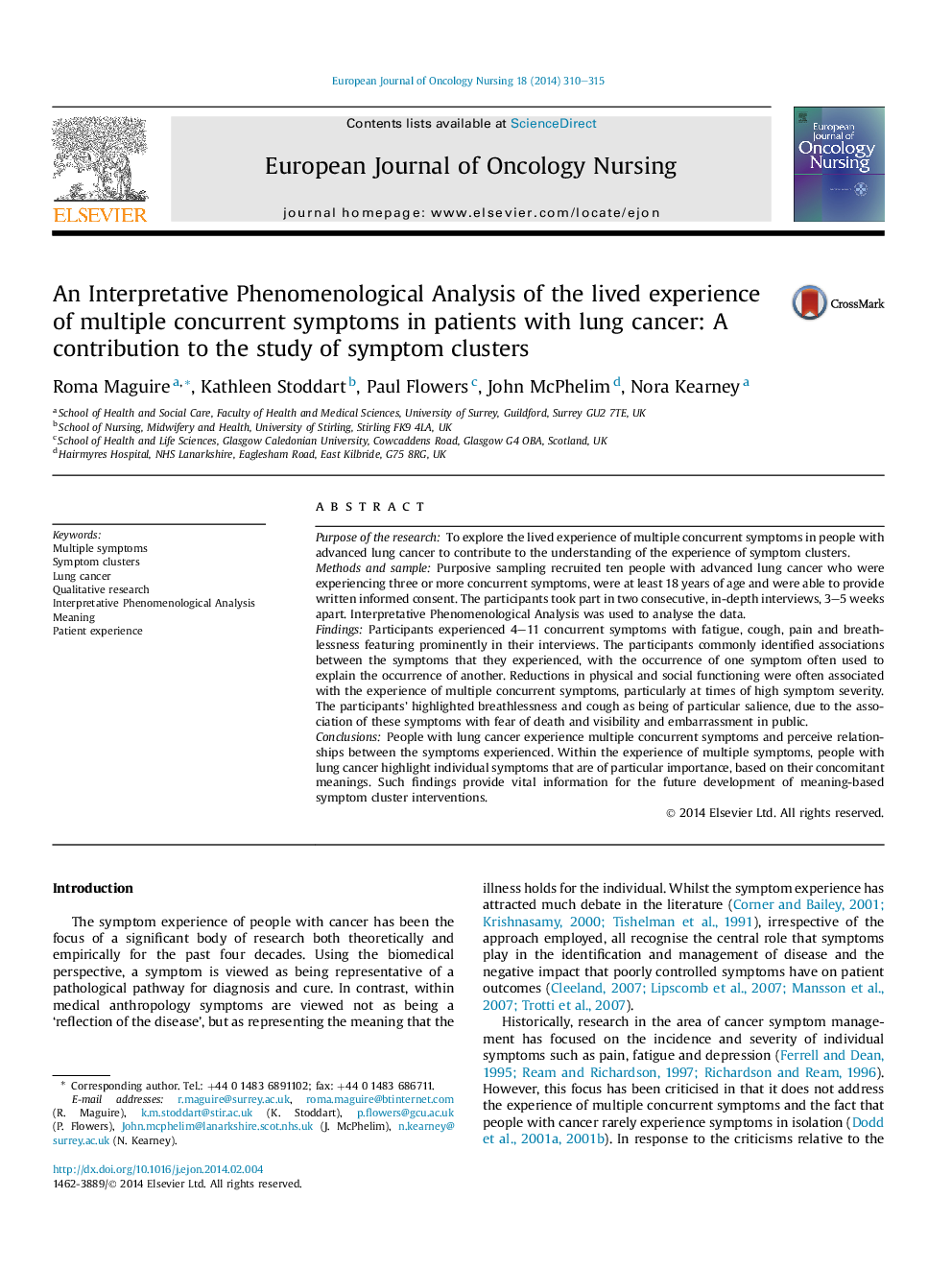| Article ID | Journal | Published Year | Pages | File Type |
|---|---|---|---|---|
| 2648674 | European Journal of Oncology Nursing | 2014 | 6 Pages |
Purpose of the researchTo explore the lived experience of multiple concurrent symptoms in people with advanced lung cancer to contribute to the understanding of the experience of symptom clusters.Methods and samplePurposive sampling recruited ten people with advanced lung cancer who were experiencing three or more concurrent symptoms, were at least 18 years of age and were able to provide written informed consent. The participants took part in two consecutive, in-depth interviews, 3–5 weeks apart. Interpretative Phenomenological Analysis was used to analyse the data.FindingsParticipants experienced 4–11 concurrent symptoms with fatigue, cough, pain and breathlessness featuring prominently in their interviews. The participants commonly identified associations between the symptoms that they experienced, with the occurrence of one symptom often used to explain the occurrence of another. Reductions in physical and social functioning were often associated with the experience of multiple concurrent symptoms, particularly at times of high symptom severity. The participants' highlighted breathlessness and cough as being of particular salience, due to the association of these symptoms with fear of death and visibility and embarrassment in public.ConclusionsPeople with lung cancer experience multiple concurrent symptoms and perceive relationships between the symptoms experienced. Within the experience of multiple symptoms, people with lung cancer highlight individual symptoms that are of particular importance, based on their concomitant meanings. Such findings provide vital information for the future development of meaning-based symptom cluster interventions.
